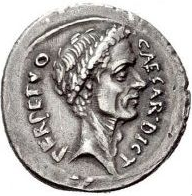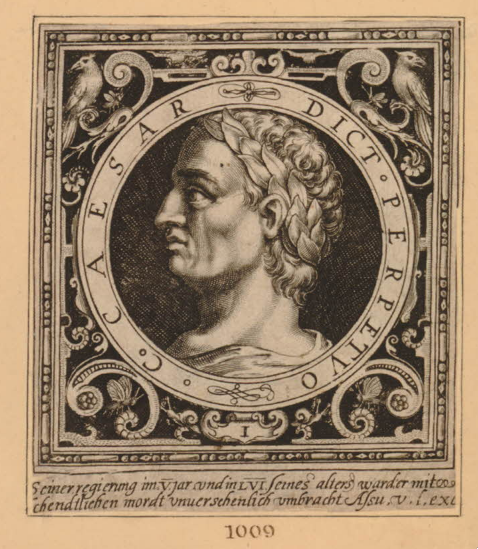The CCP Central Committee has ‘proposed’ to remove presidential term limits from the constitution of the PRC, providing the temporal unboundedness other Xiist endeavours demand. The following are to be constitutionally enshrined: Xiism as a doctrine (“Xi Jinping Thought on Socialism with Chinese Characteristics for a New Era” (习近平新时代中国特色社会主义思想)); “reform”, as part of a long process in the past, after “revolution” and “construction”; the “Rejuvenation/Revitalisation/Renewal of the Chinese Nation” (minzu); perhaps most relevantly to this blog, United Front work. (The changes can be most conveniently read, in Chinese and English translation, on NPC Observer.)
Imperial analogies are obvious, and are keeping censors busy. As usual in such cases, censorship is being tracked by the China Digital Times (CDT, 中国数字时代), who maintain a Sensitive Word Database (敏感词库). Any number of terms alluding to the Imperial ascent have been blocked; many refer to the last person to assume the title of Emperor, Yuan Shikai 袁世凯. Less obviously, the Latin letter n was also briefly blocked for some users on February 25, as Sandra Severdia, senior Chinese editor at CDT, first reported on a microblogging site. As I speculated there, this could refer to n as an integer variable, with n ≥ 2. Victor Mair devoted an entire post to the event (“The letter * has bee* ba**ed in Chi*a“). Referencing Mark Hansell (“The Sino-Alphabet: The Assimilation of Roman Letters into the Chinese Writing System“), Mair notes that “the Roman alphabet is part of the Chinese writing system”, so that letters have the same right to being censored as Chinese characters. Here’s how he explains the inequality:
This is probably out of fear on the part of the government that “N” = “n terms in office”, where possibly n > 2; as in “liánrèn n jiè 连任n届” (“n successive terms in office”), which would be forbidden anyway because of the liánrèn 连任 (“continue in office”) part.
Mair’s comments on n reached all manner of media (The Garudian, the Gray Lady, Newsweek, peculiar Millennial haunt 9GAG, CNN (who, regrettably, called the inequality an “equation”), the Riga-based Meduza…). The ban was short-lived, and it only affected some users; other than Severdia and CDT, it was independently reported by Douban users later that day.
The letter ban is of anecdotal significance, but it shows the demands put on the censorship system by the discontent and mockery the ‘proposal’ generated. As for the more substantive aspects of Xi’s term-unboundedness and the Amendment, little needs to be said, as a great many have commented. From The Onion (洋葱报)’s “American Voices” Panel of Experts
It’s so great that Xi Jinping has found something he wants to do for the rest of his life.
to a Voice from the Land of Heart’s Desire (NZ, kāmadhātu, 欲界):
Should President Xi continue onto a third term, the constitutional change will lessen the usual personal, institutional and policy uncertainty that accompanies a leadership succession every 10 years in China. This may be desirable given that China has been undergoing massive long-term economic and military restructuring and embarked on the Belt and Road initiative. Stability at the top, to some extent, may enable better chances of successful policy outcomes.
(Dr Xiang Gao of the Eastern Institute of Technology, Auckland, channelled by an outlet of the Asia New Zealand Foundation.)
As of press time, it’s unclear if such views on the desirability of perpetual dictatorship are also common among New Zealand’s policymakers; an earlier post of mine might help inform an informed guess.
More cogently, Geremie Barmé points to the use of refloated imperial imagery by both Mao and Xi (“The Real Man of the Dog Year“). Introducing a piece by Hong Kong commentator Lee Yee 李怡, Barmé has this to say on the personality cult:
Despite the fitful de-Maoification of the late 1970s and early 1980s China as a one-party state has never really bid farewell to the cult of personality. The grand architect of the country’s successful economic, and failed political, reforms, Deng Xiaoping, was deified both during and after his rule. The media adulation showered on him certainly never reached the absurd heights of the Mao cult, but for analysts and commentators to have claimed at the time — or thereafter — that by instituting a form of collective leadership he and his fellow gerontocrats rid the country of the cult of the leader is ridiculous. Ever since the rejection of substantive political reform in China, the reappearance of the authoritarian personality at the apex of the party-state hierarchy has been a dark possibility. Given the decade of charismatic deficit under Hu Jintao, both Xi Jinping and Bo Xilai promised lineage, competence and personal domination. The forty-year arc of return is long but its workings would now appear to be irresistible.
Meanwhile, China Radio International (CRI), this blog’s favourite exoprop organ, ran an interview with Hubei NPC delegate Zhou Hongyu 周洪宇, who called for “severe punishment” for those who mock or “defile” (亵渎) Red Songs, such as The East is Red (东方红), the Yellow River Cantata (黄河大合唱) and the Internationale. He was surely referring to recent stories about a TV talent show from a couple of years ago (perfectly apolitical, and unfunny) and a number of online videos which were probably funnier but seem to have been deleted. In a way, Xi’s impending enthronement is itself a defilement of the Internationale, or at least makes it harder to sing 不靠神仙皇帝 (ni Dieu, ni César, ni Tribun) with a straight face.
Even a Finnegans Wake bot had something timely to say:
Fengyang 凤阳 was the birthplace of Zhu Yuanzhang 朱元璋, the founder of Ming dynasty.
All this late-winter Imperial Resurgence brings to mind another title the Ministry of Truth might not like: the one Julius Caesar was accorded approximately 2061 years ago, in January or February.
The exact wording occurs in different variants. Dict[ator] perpetuo (‘dictator in perpetuity’) is probably the original form, as it was used on coins at the time (Grueber, I, p. 545ff.)

CAESAR˙DICT PERPETVO. Denarius, 44 BC. Source: ANTIQVA.ORG.
Livy (Per. 116) has dictator in perpetuum. Dictator perpetuus (‘perpetual dictator’) occurs later, in Florus (Epit. 2.13.90); and there’s also perpetua dictatura (‘perpetual dictatorship’) in Suetonius (Iul., 76). Cicero (Phil. 2.87) should have precedence as a contemporary, but he has the noun phrase in the dative (dictatori perpetuo), which is compatible with both dictator perpetuo and dictator perpetuus.
Caesar wasn’t able to enjoy his perpetual title for more than a few weeks, as he didn’t make it past the 15th (the Ides) of March. Quite a bit of the “uncertainty” ensued that the NZ expert above thinks “desirable” perpetual dictatorship can prevent; as it tends to happen when personalised rule meets Personal death, but some people never learn.

Seiner regierung im V. jar und in LVI. seines alters ward er mit [s]chendtlichen mordt unuersehenlich [CORRECTION: I first mistranscribed unuerschenlich; see comment by David Marjanović] umbracht. (‘In the 5th year of his rule, the 56th of his age, he was unexpectedly killed in a shameful murder.’ The final –n in the strong dative schendtlichen could be due to Dutch or Low German influence.) Engraving published by Ahasuerus van Londerseel ca. 1587-1635, British Museum.
The National People’s Congress opens a.d. III Non. Mar. (two days before the Nones of March, i.e. ten before the Ides).
I’m not sure if it’s vnuerschenlich, which I don’t recognize and I notice you didn’t translate, or vnuersehenlich, which might mean “not accidentally” (*un-versehentlich, with a later excrescent -t-) or, more likely, “unexpectedly and suddenly” (unversehens). e and c are hard or impossible to distinguish elsewhere, e.g. in schendtlichen.
-n occurs for -m also occurs in in for im right after im is correctly used.
Thanks for that. Yes, absolutely, that’s an error in my initial transcription which I forgot to fix while editing (will do now). I translated it as unuersehelich ‘unexpectedly’ thinking of Modern Dutch onvoorziens.
I also found the im vs in thing puzzling. Do you think my suggestion of Dutch or Low German influence makes any sense? I said that as a wild guess, since Middle Dutch (and MLG too if memory serves) would have strong dat. in -n.
[…] in Communist history, Xi as the Party’s “Core” (核心) has been consolidated as potentially perpetual dictator. Party discipline is mostly enforced through extra-legal bodies, notably the Central Commission for […]
[…] in Communist history, Xi as the Party’s “Core” (核心) has been consolidated as potentially perpetual dictator. Party discipline is mostly enforced through extra-legal bodies, notably the Central Commission for […]